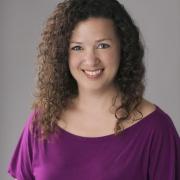One thing I’ve learned in the time I’ve been blogging about child sexual abuse prevention is that it brings out stories from people in a way nothing else has—not for me, anyway. Friends old and new have approached me to tell me stories from their pasts that break my heart. In one case, I was emailing back and forth with my friend Grace (name changed), tears streaming down my face as I read about how she was blamed for her own sexual abuse at the hands of her brother (something she endured for 15 years) because she “wore the pajamas in the living room, after all.”
Pajamas. In the living room.
My company’s social-emotional learning program, Second Step, teaches children to stop, name their feelings, and calm down when they’re experiencing strong emotions. Not gonna lie: Sometimes it’s really hard to follow our own advice. But as I read Grace’s emails, I tried.
Keep your golden thread, Rumpelstiltskin
I stopped. I named my feelings: Sadness. Helplessness. And blind RAGE that any human being could have the capacity to do something so awful to another. But I didn’t calm down. Instead I wished for a magic wand to take away Grace’s hurt and shame and confusion. Keep your golden thread, Rumpelstiltskin: I’ll settle for a world in which child sexual abuse doesn’t exist.
But because no spinning wheel in the world can accomplish that, we’ll have to do the work ourselves.
What they want to hear
It’s one thing to talk in the abstract (even research-based, field-tested abstract) about what we should say to our kids, both to prevent and to deal with sexual abuse. We’ve even made a series of short videos to help you out. But it’s quite another to hear survivors tell you what they wish they had heard from the adults in their lives. I was very encouraged to observe that the two lists are very much the same—but I’ll let Grace tell you in her own words what she wishes she could have heard from her mom and dad. She wishes they had said that…
-
“They believed me, believed all of it, and that I didn’t cause it. They believed it was my brother.”
-
“They were strong enough to deal with this without falling apart, divorcing, killing themselves, beating me, or blaming me.”
-
“They would not let that bastard hurt me, stalk me, scare me, intimidate me, rape me ever again.”
-
“They would guard me so I would not risk embarrassment.”
-
“They would help me through my shame.”
-
“They would understand why I kept that secret for so many years and help me understand why I was keeping it.”
-
“Grandparents would support me in the same ways. I could count on everybody.”
-
“They were strong enough to deal with my brother, there were plans.”
This is why we have to face this head on. This is why we can’t put off these conversations with our kids. Because they need to understand these crucial messages —as Grace, whose brother essentially socialized her into rape when she was four or five (“I thought it was sort of a normal, yucky part of growing up,” she told me), did not. Click on the links to learn more about each one, and watch a short video about how to get the conversation started.
-
It is not okay for someone to touch your private body parts except to keep you healthy.
-
If someone does try, tell me right away. No secrets.
-
If you tell me, I will believe you.
-
If you tell me, I will get you help.
There are more
And just in case you think Grace is an anomaly, remember that one in four girls and one in 20 boys report experiencing sexual abuse before the age of 18 (notice the word “report:” those are only the ones we know about. Imagine how many we don’t).
That means that, statistically speaking, a quarter of your female friends and five percent of your male friends are child sexual abuse survivors. Take my friend Robert (name changed), for instance, whose brother sexually abused him for four years. “I had no recourse,” he told me. “No way of knowing I could do anything about it. Such deep shame.”
When Robert reported the abuse to his father, he responded with, “Children do not abuse other children.” Robert would instead have liked to hear, “I'm sorry this happened. I'm sorry we didn't realize this was happening. I'm sorry we didn't stop this.”
Cartoons and cereal
And then there are the several other friends I mentioned earlier who have said to me in passing things like, “Thank you for telling parents what to say. I wish the adults in my life had said that when I reported.” Child sexual abuse happens. And it happens often. And we can stop it.
So let’s create a world in which no child ever has to associate wearing pajamas in the living room with anything other than cartoons and cereal.
Ready? Let’s do this.


The views and opinions expressed in this post are those of the author(s) and do not necessarily reflect those of MomsRising.org.
MomsRising.org strongly encourages our readers to post comments in response to blog posts. We value diversity of opinions and perspectives. Our goals for this space are to be educational, thought-provoking, and respectful. So we actively moderate comments and we reserve the right to edit or remove comments that undermine these goals. Thanks!